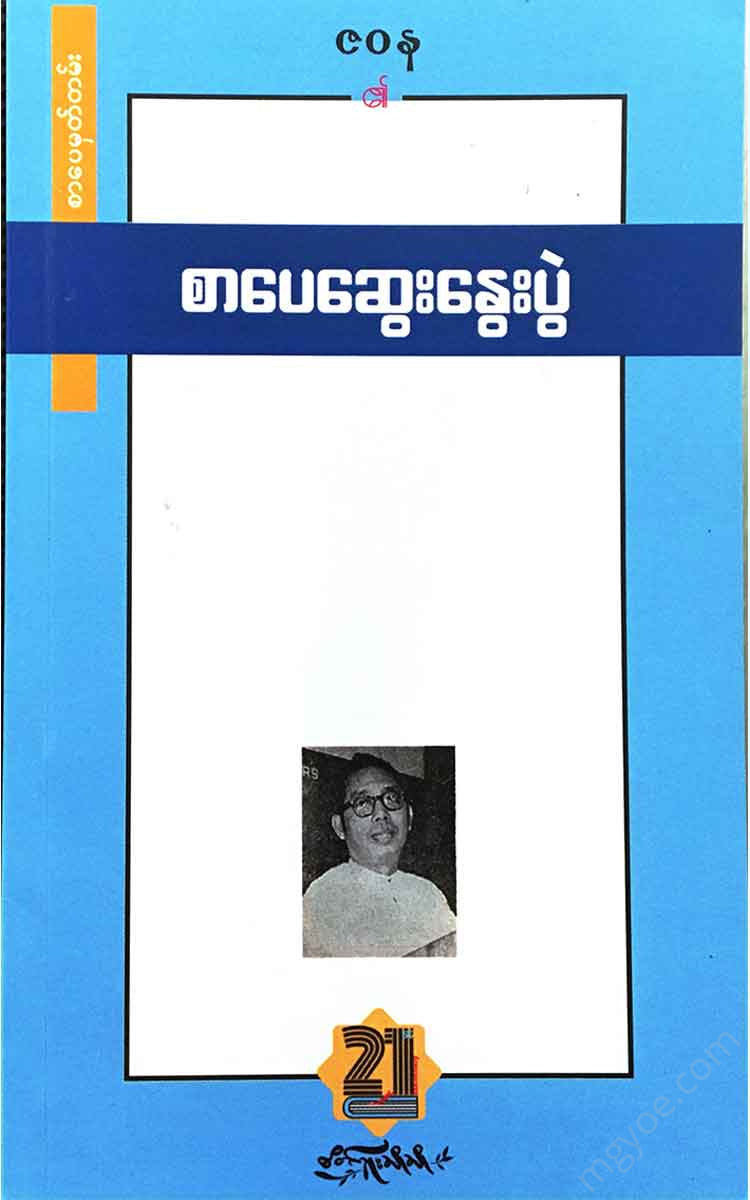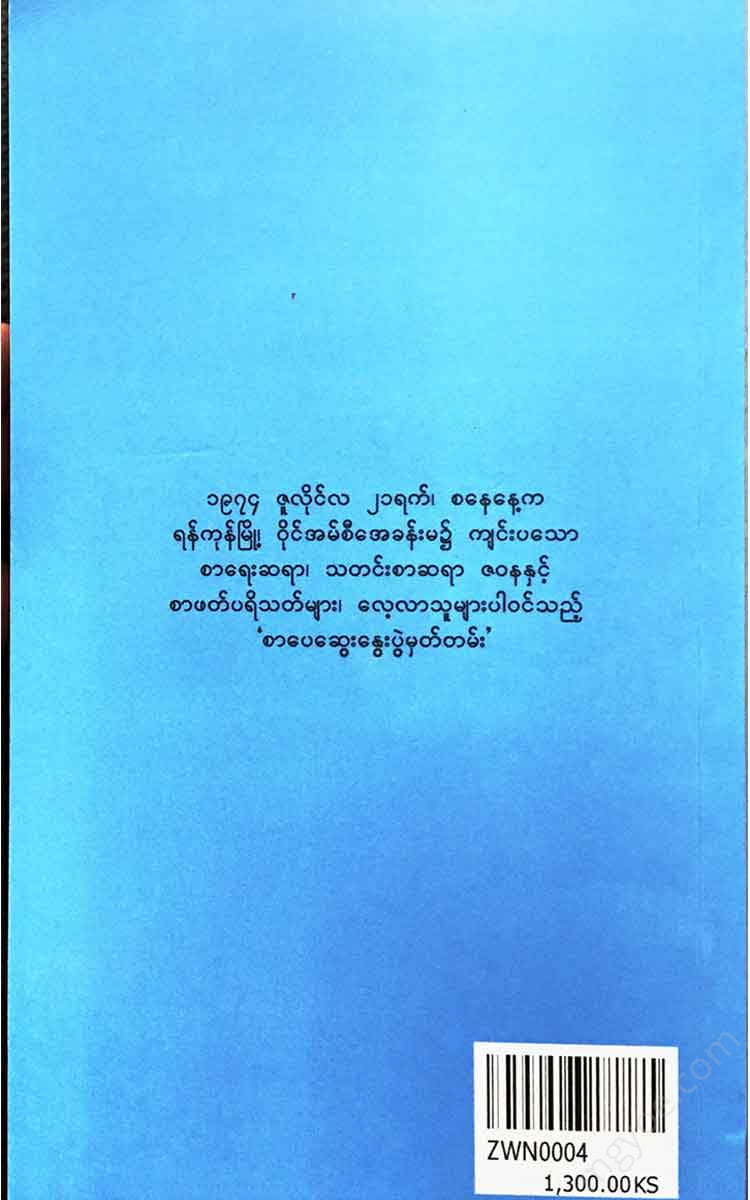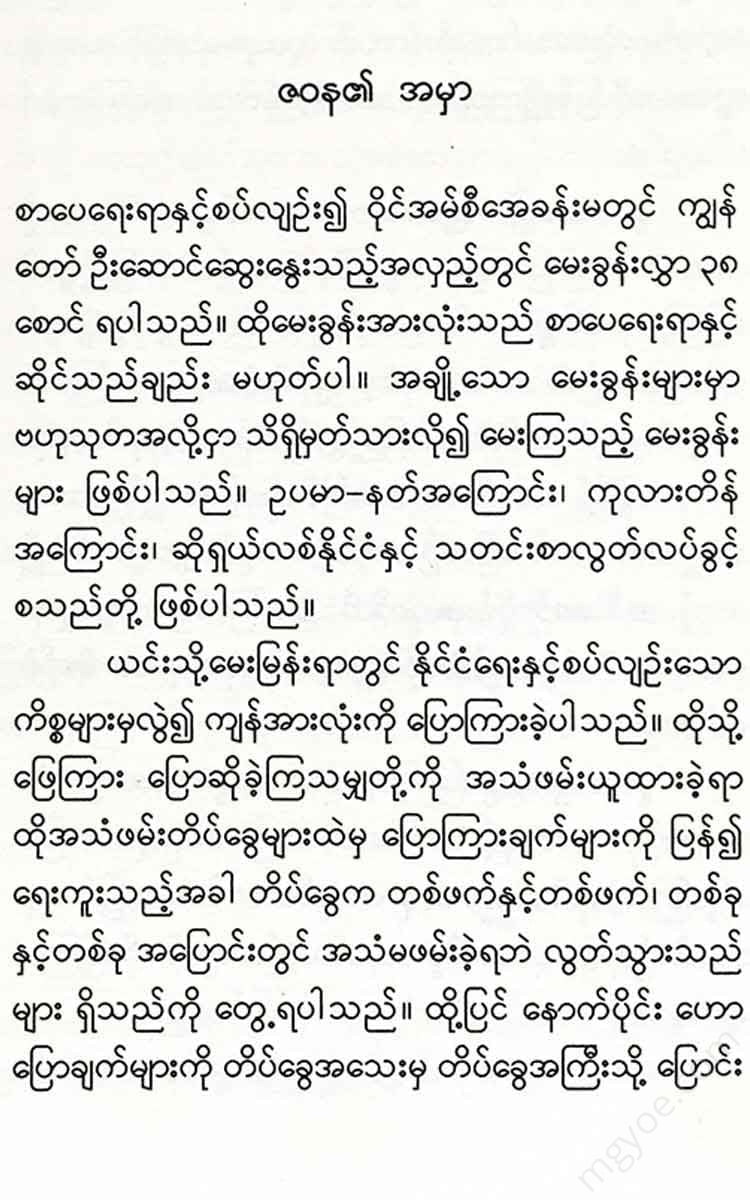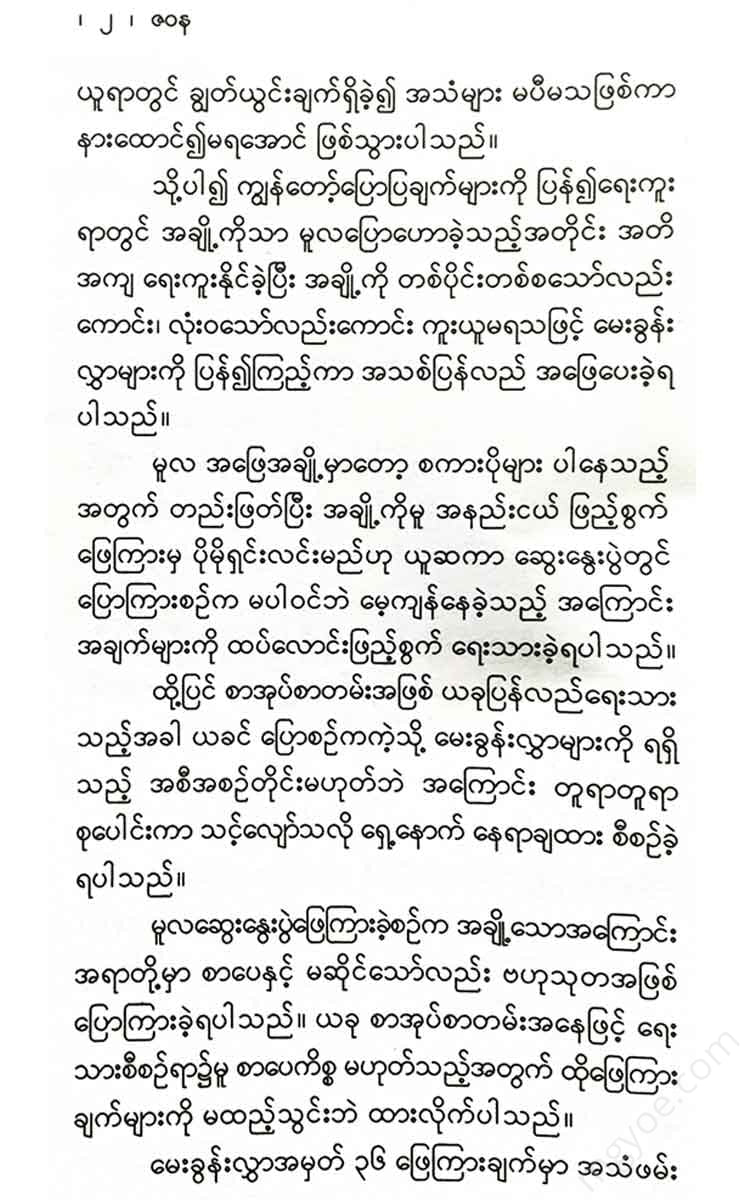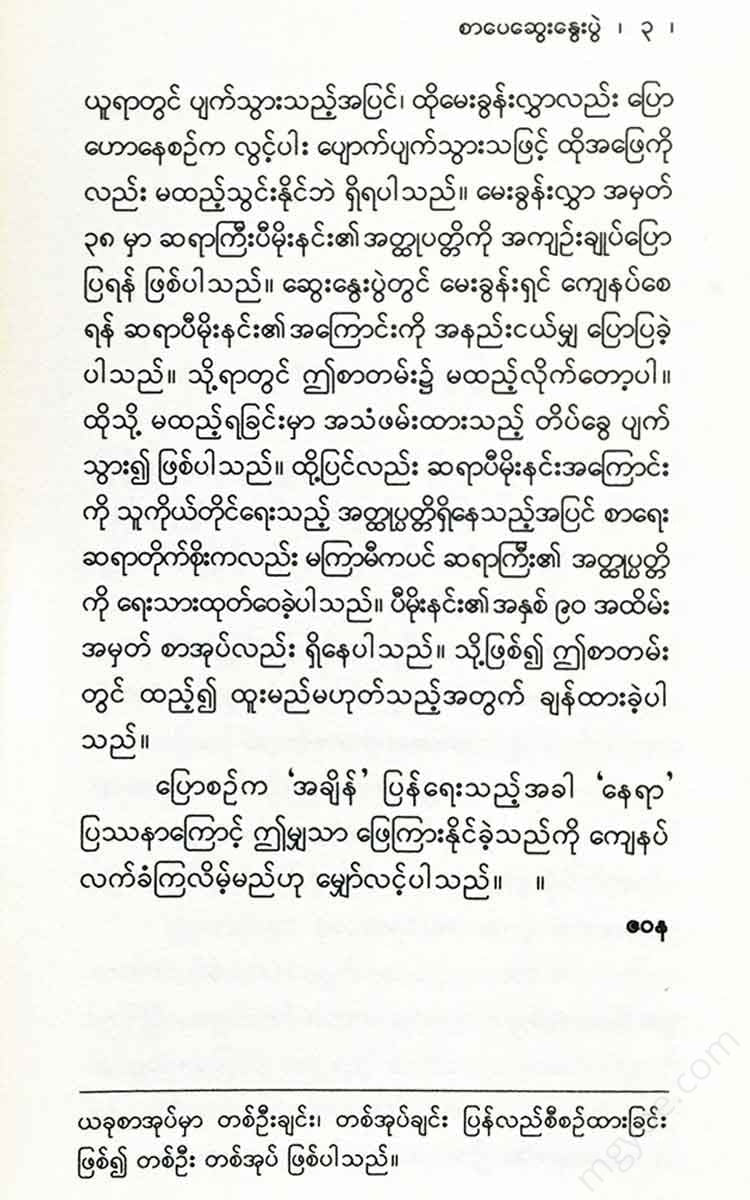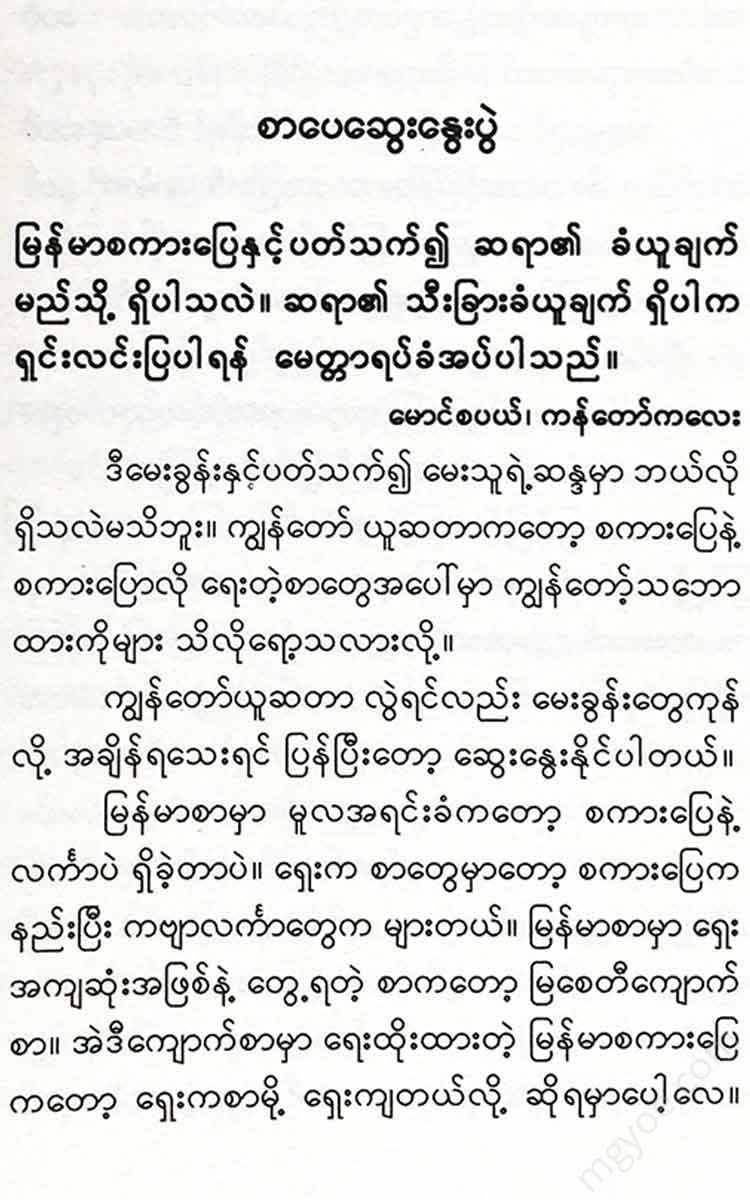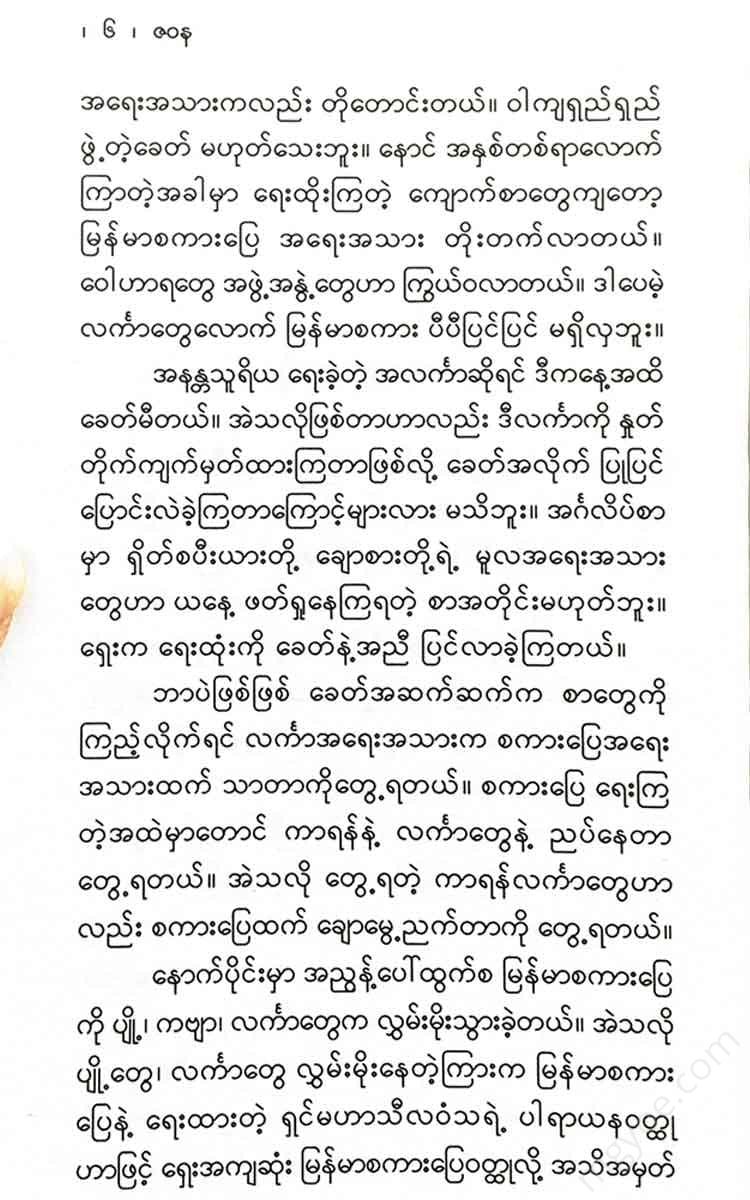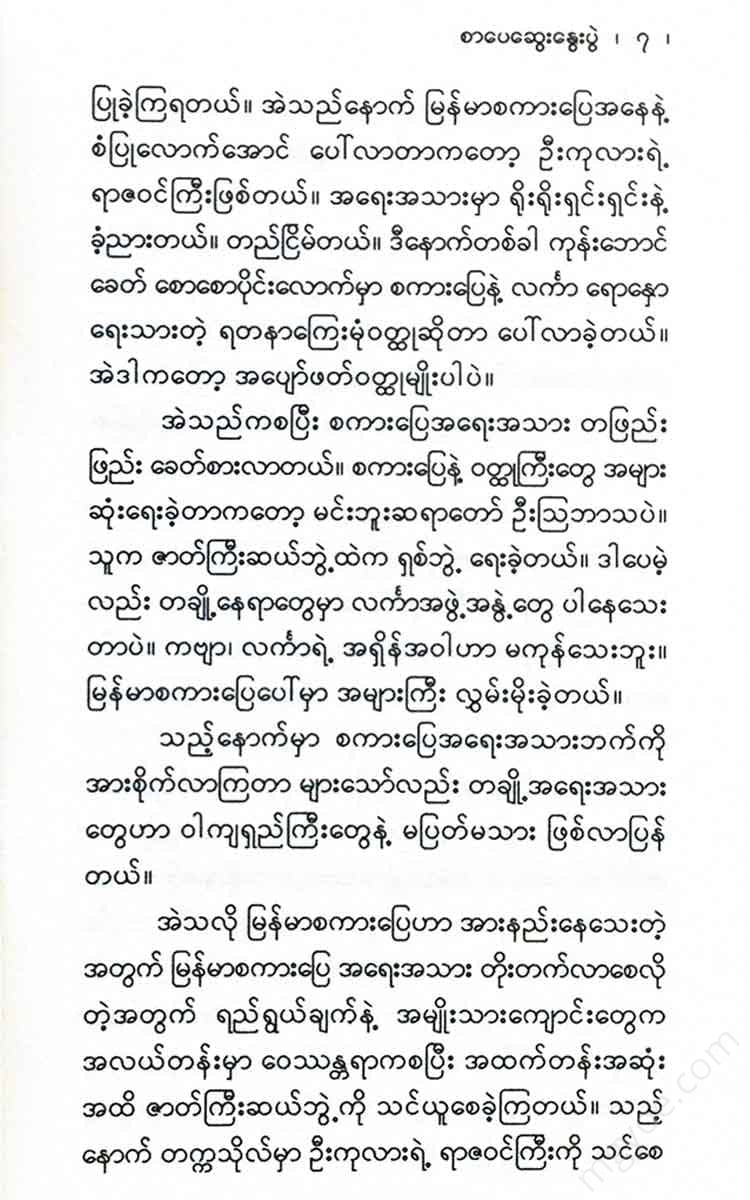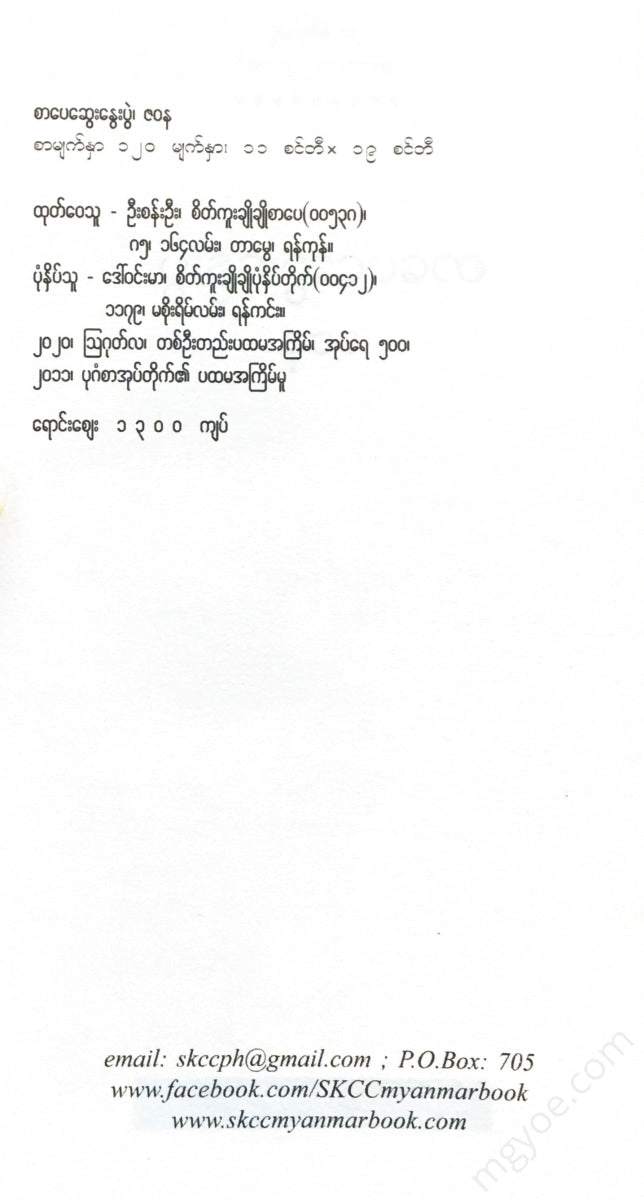စိတ်ကူးချိုချိုစာပေ
Javana - Literary Discussion
Javana - Literary Discussion
Couldn't load pickup availability
That's what they did to improve prose writing between the 1920s and 1930s.
So, after 1930, as a literary movement, the university itself began to publish modern prose. This was to improve prose writing, to make it concise, and to write with a fresh perspective in finding content.
Similarly, over time, people have tried to improve the quality of prose, and now we see a lot of progress.
Now, from prose writing, they have even invented spoken and written language. It all started in Mandalay.
Everyone writes prose as if they were writing. Mandalay writes as if they were speaking. In my opinion, there are things that should be written in prose and things that should not be spoken. In my articles titled “Uncle Will Speak” and “Hello Burmese Times,” I wrote them in a conversational style, as the title suggests. Other articles are written in prose.
It should be used in its proper place. I think it should be written.
For example, let's advertise a book. Written by Luthu U Hla, or Luthu U Hla's A Thousand Mistakes in Alcohol is about to be published. If it is printed by the Kyaw Kyaw Printing House, we can read it. Otherwise, Luthu U Hla's A Thousand Mistakes in Alcohol is about to be published. If it is printed by the Kyaw Kyaw Printing House, I don't want it to be too loud. It's like saying it arrogantly. If everyone in the future starts writing like this, I don't know if it will be deaf or blind.
Until now, few people have written in this style of speaking.
I understand that this happened because of the Burmese language teachers who were teaching it abroad. Yes. For foreigners, there is not much difference between spoken and written English. Especially the English spoken in Parliament, which is called “Royal English”, is the same as the English spoken in prose and writing. But for the poor and lower classes,
Spoken words and English prose are different. If they were written in their own words, no one else would be able to read them.
In Myanmar, writing and speaking are different, so it is funny to speak as if you are writing, so foreigners have to learn by speaking. Therefore, speaking and writing do not improve prose or writing, nor do they improve speaking skills, and they do not reach the ears of Myanmar. It is also good for foreigners who are learning Burmese.
I see that.
Please give your opinion about speech and writing.
Ko Thaung Han, Sarkaw Pindan
I've already talked about prose and conversational style, so I don't need to talk about it again.
If this question is about giving an opinion on speaking words or writing words, then you have to answer one way or the other.
There are two types of oral speech. Local speech and ceremonial speech, or ceremonial speech. Local speech is a variety of ways to talk about food and drink.
The words, or the words of the ceremony, are often used to say, “Because we have to take refuge in the love of the people.” If we change that to the local language, we would say, “Because we have to receive the love of the people.”
In terms of writing, if it is a conversation between people in a novel or a column, it is written in the style of a speech. On the other hand, when a story or a topic is written in the style of a speech, it is not a formal speech, nor is it a speech, but it is slightly modified to make it more literary. However, it avoids the words ເສື່ອງ, ສາຍທີດ, ສາຍທີດ, ສາຍທີດ, ສາຍທີດ. Instead of saying “ສາຍທີດ
Please explain your opinion about non-rhyming poetry.
Maung Thet Win, Kabar Aye Street
Non-rhyme poetry, for example (...), has been popular in other countries for a long time. This idea, or rather, this disease, has only recently spread to Burmese literature. We, on the other hand, like to call it old-fashioned, outdated, and prefer traditional writing.
As we have learned and memorized in poetry, there are songs and rhymes. Both of these are pleasant to the ear when composed with rhyme. There is also a Vigaha about rhyme, right? Most people know. Kanna is a rhyme, and rhyme is what adorns the ear so that it becomes Kanna's pleasure. If it is not rhymed, but poetry with rhymes, I do not like it. A rhyme is a rhyme. A poem is a poem.
Poetry is composed of rhymes and is remembered by the ear. That is why in the past, from folktales and folktales to medical texts, people composed poems in rhymes. That is how they composed poems and is remembered by the ear.
There is one thing. If there is rhyme, it is not good to have a lot of repetitions, whether they have meaning or not. If some people are stuck with rhymes, groups, and rhymes, they cannot express their own thoughts and ideas. They say that writing is not free.
They say.
This begs the question: why were ancient writers able to write great, good works amidst such limitations?
It's like they invented new paintings because they couldn't keep up with the work of the great ancient artists.
Some people deliberately break the rhyme. Others write without rhyme, as if it doesn't exist. For example, "Hor-ka-ka", "Yin-sasa-sa-we", "Mee-ja-la-la", "A-ma-hwe-ji-ya-ya", "Ka-ka
And the poems they are writing now are too short. I can't even say that they are finished. Also, I don't understand some of the poems when I read them. Here, I want to praise the artist Aung Soe. He is the only one who understands, he is the only one who paints. He only speaks what he understands, and I don't understand the pictures he writes. I am fascinated by the pictures and poems he writes.
What we are writing now is that a bird landed on a branch, and the bird flew away, leaving the branch shaking. It is short. The meaning is up to you to decide. Lovers think that the bird is a symbol of their lover. Bird
